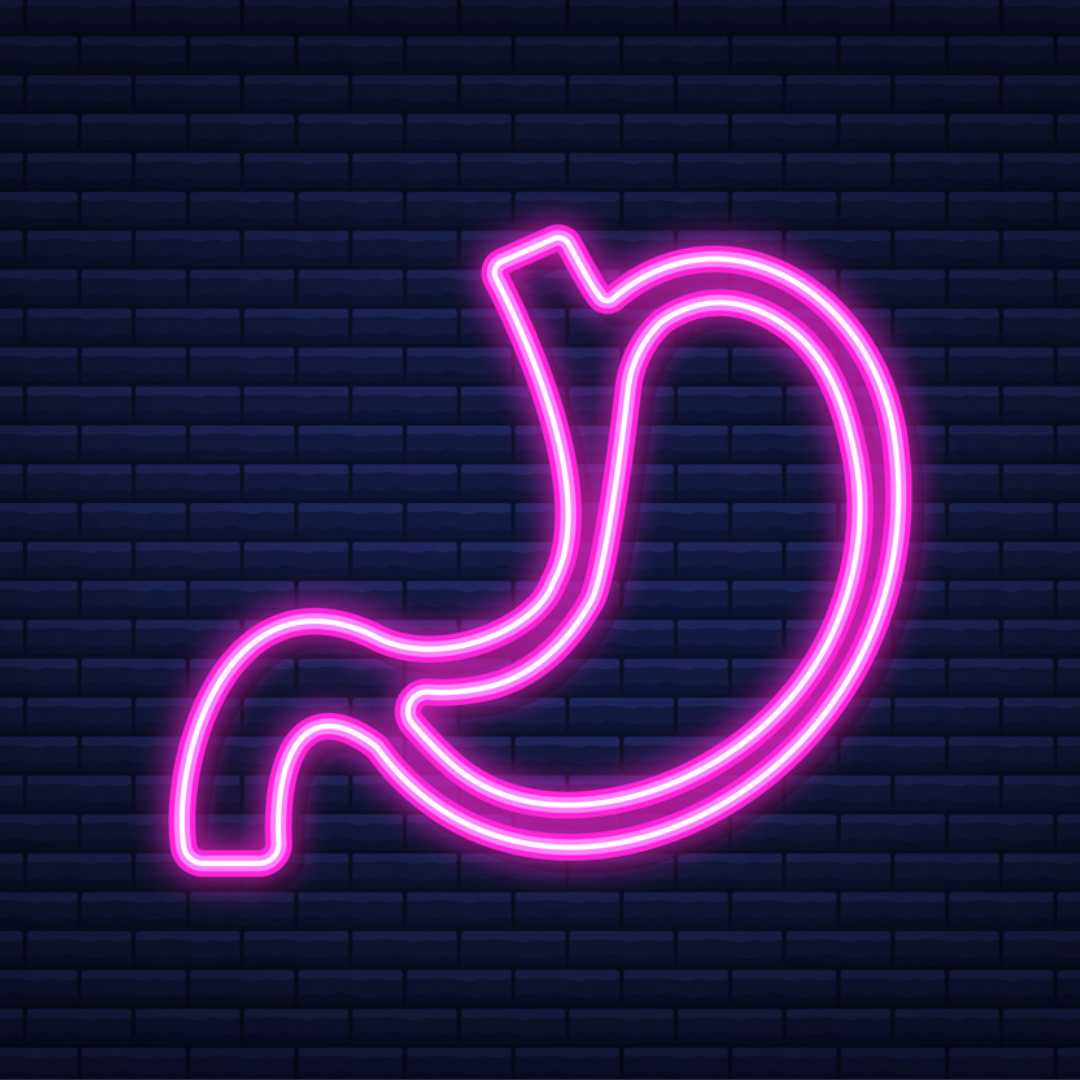Request a video call
Confirm Your Virtual Consultation
The Bariatric Group Profile Overview
Surgery can give you your life back!
We work with hospitals in the United States and Mexico. Our teams of surgeons are excellent and very skilled, and each of them have more than 10 years of experience. Whether you choose Mexico or the United States, you know that you will be well taken care of. In fact, you will find that some of the hospitals in Mexico are actually American-owned and very similar to the hospitals here in the United States. Our team is very unique. We only work with the most skilled professionals.
Why Weight Loss Surgery?
- Only about 3-5% of all people who attempt weight loss through diet and exercise programs are successful long term.
- The National Institutes of Health (NIH) of the United States of America convened a consensus panel of experts on obesity and medical management of obese patients in 1991 and 1996. Their conclusion was that weight loss surgery in patients who have failed diet and exercise programs is the most effective and ONLY method which results in significant weight loss long term.
- Patients who are morbidly obese have much higher rates of diabetes, high blood pressure and heart disease than non-obese patients.
- Each year approximately 300,000 individuals die from obesity related causes in the US. This number is second only to smoking.
- Morbidly obese individuals are 5 times more likely to die prematurely than non-obese patients.
- Following weight loss surgery, more than 90% of morbidly obese patients who also have associated medical problems such as diabetes or high blood pressure no longer require medication or treatment to control their diseases.
- With an experienced surgeon and the appropriate operation, patients who undergo weight loss surgery lose an average of 60-80% of their excess weight.
Weight loss surgery works & changes people's lives!
We offer the following surgeries:
- Mini Gastric Bypass
- Gastric Sleeve Procedure
- Roux-en-Y Gastric Bypass (RNY)
- Lap-Band Procedure
Benefits of Surgical Weight Loss:
- High Blood Pressure can often be alleviated or eliminated by weight loss surgery
- High Blood Cholesterol in 80% of patients can be alleviated or eliminated and in as little as 2-3 months post-operatively.
- Heart Disease in obese individuals is certainly more likely to be experienced when compared to persons who are of average weight and adhere to a strict diet and exercise regimen. There is no hard and fast statistical data to definitively prove that weight loss surgery reduces the risk of cardiovascular disease, however, common sense would dictate that if we can significantly reduce many of the co-morbidities that we experienced as someone that is obese, we can likewise that our health may be much improved if not totally restored.
- Diabetes Mellitus can usually helped and based upon numerous studies of diabetes and the control of its complications, it is likely that the problems associated with diabetes will be arrested in their progression, when blood sugar is maintained at normal values.
- Abnormal Glucose Tolerance, or “Borderline Diabetes” is even more likely reversed by gastric bypass. Since this condition becomes diabetes in many cases, the operation can frequently prevent diabetes, as well.
- Asthma sufferers may find that they have fewer and less severe attacks, or sometimes none at all. When asthma is associated with gastroesophageal reflux disease, it is particularly benefited by gastric bypass.
- Sleep Apnea Syndrome sufferers can receive dramatic effects and many within a year or so of surgery find their symptoms were completely gone, and they had even stopped snoring completely!
Gastroesophageal Reflux Disease can be greatly relieved of all symptoms within as littler as a few days of surgery. - Gallbladder Disease can be surgically handled at the time of the weight loss surgery if your doctor has cause to believe that gallstones are present.
- Stress Urinary Incontinence responds dramatically to weight loss, usually by becoming completely controlled. A person who is still troubled by incontinence can choose to have specific corrective surgery later, with much greater chance of a successful outcome, with a reduced body weight.
Low Back Pain and Degenerative Disk Disease, and Degenerative Joint Disease can be considerably relieved with weight loss, and greater comfort may experienced even after as few as 25 lost pounds.
Questions? Talk right now to someone that's already been through the surgery.
Gastrointestinal surgery for obesity, also called bariatric surgery, alters the digestive process. The operations can be divided into three types:
- Restrictive
- Malabsorptive
- Combined restrictive/malabsorptive.
Related Diseases % Cured after Surgery:
- Diabetes mellitus type 2 95%
- Asthma 90%
- Sleep apnea 90%
- Hypertension 80%
- Stress 75%
- Osteoarthritis 50%
Arrange Your Financing
Once you've decided on a doctor that you are comfortable with, it is important to arrange the financing. If you have the money saved or put away for this already, then you can go to the next step, but if you need help with the financing there are outside lenders that work directly with our team. Your coordinator can help you with this process. You can be approved in as little as ten minutes.
The Bariatric Group, , Mexico Profile Details
Assistance in Mexico:
You may feel a little nervous about traveling outside the United States, but it is only a couple of hours away. It takes longer to fly coast-to-coast than it does to fly to Mexico. When you arrive, we have a chauffeur meet you at baggage claim and bring you to the hospital or Hotel, and all of your arrangements are already set up for your convenience. We arrange all of your accommodations at the hotel and hospital, and the doctor's staff and our team will treat you very well. You have to understand that thousands of Americans cross the borders into Mexico everyday. It isn't as dangerous as the media makes it out to be. It isn't any different then being in a large city right here in the United States.
The hospitals in Mexico that we are associated with have all the conveniences that we have in the United States, and the sanitation and regulations of the hospitals in which our doctors practice are the same as the United States.
The Hospitals in the USA
If you are uncomfortable with going out of the country, we work with excellent surgeons right here in the United States. They are an excellent choice when deciding on where you want to have your surgery. The facilities are state-of-the-art, and all the surgeons we work with are very compassionate toward their patients.
Whether you want to have your procedure done in Mexico, or you want to stay here in the United States, our team is ready to assist you.
The Surgery
The most important thing to remember about the hospital and surgery isthat the doctors, nurses, and staff know exactly what they are doing, and they will take excellent care of you. There will always be someone at the hospital from administration that will be able to explain everything, and continue to answer all of your questions about that facility. You will be directed through admissions, and then taken to your hospital room to be prepped for surgery. You will see your doctor and meet the rest of the surgical team before the operation begins. The procedure usually takes about 30 to 90 minutes depending on which surgery you are having. Once you awake in the recovery room, the nurses will monitor you and let you wake up a little. You will then be brought back to your hospital room to rest for a while. Nurses and doctor's staff will be checking on you regularly to make sure that you have everything you need.
Ongoing Recovery
Once you are fully awake you will already be in your room. After resting for a little while the nurses will encourage you to get up and start walking. After 6 to 12 hours you will start with ice chips and graduate to liquids. The doctor will come by and check on you to make sure you are doing well and have everything you need. The day you are released from the hospital, you will be taken to your hotel. Once you have checked into the hotel, it is a good thing to rest for a while. After you have rested, it is a good idea to either walk around the hotel or maybe at a mall (It is important to move around). The more you walk, the better you will feel. After a good night's rest on the last night at the hotel, the next morning you will be ready to fly home and start your new life!
The Bariatric Group Treatments Offered
We offer the Following Surgeries:
- Mini Gastric Bypass: Mini-Gastric Bypass is a minimally invasive procedure that partitions the stomach into a long, narrow tube and a separate larger piece. The smaller stomach is attached about 6 feet down in the small intestine. The larger stomach is sealed and left unattached. MGB has been found to be safer than other kinds of bariatric surgery.
The smaller stomach decreases the amount the patient can eat and the bypass of a portion of the small intestine decreases the the absorption of fat and calories. This combination of smaller volume and decreased absorption has resulted in an average weight loss of 140 pounds in one year in a 300-pound patient.
The surgery is done in 45 minutes approximately. The recovery is a very fast since the procedure is done by laparoscopy. The patient will be walking 2 or 3 hours post-op and will be discharged from the hospital in 24-48 hours after the surgery.
The relative weights of the risks and benefits will differ for each patient. Anyone considering MGB (or any other bariatric surgery), in cooperation with his or her family Doctor and a Doctor qualified to perform MGB, should make very effort to learn about how the surgery fits with his or her lifestyle
- Gastric Sleeve Procedure: The Gastric Sleeve procedure - or Sleeve Gastrectomy - is an operation in which the left side of the stomach is surgically removed. This results in a new stomach which is roughly the size and shape of a banana. Since this operation does not involve any "rerouting" or reconnecting the intestines, it is a simpler operation than the gastric bypass or the duodenal switch. Unlike the Lap-Band® procedure, the sleeve gastrectomy does not require the implantation of an artificial device inside the abdomen.
For certain patients, in particular those with a body mass index greater than 60, the sleeve gastrectomy may be the first part of a 2-stage operation. The 2-stage operation may have substantial advantages for specific individuals.
Low BMI individuals who should consider this procedure include:
Those who are concerned about the potential long term side effects of an intestinal bypass such as intestinal obstruction, ulcers, anemia, osteoporosis, protein deficiency and vitamin deficiency.
Those who are considering a Lap-Band® but are concerned about a foreign body inside the abdomen.
Those who have medical problems that prevent them from having weight loss surgery such as anemia, crohn's disease, extensive prior surgery, and other complex medical conditions.
People who need to take anti-inflammatory medications may also want to consider this. Usually, these medications need to be avoided after a gastric bypass because the risk of ulcer is higher.
It might also be a good option if patients have a problem with their lap band requiring revision, have already lost a lot of weight and don't want a full bypass. The weight loss seems to be a little better and more rapid than the lap band (60 - 70% EWL) over two years. There is still no long-term data.
- Roux-en-Y Gastric Bypass (RNY): Roux en Y (RNY) is a bariatric procedure that staples off a 1-ounce stomach pouch at the upper portion of the stomach. A section of small bowel is then attached to the pouch via a small opening, which simulates the pyloric valve.
RNY evolved from other bariatric surgeries to provide more consistent and successful weight loss. The small upper pouch is completely separated from the distal stomach which is left in place. A "Y" shaped segment of small bowel is attached to the pouch with a narrow opening. This delays the mixing of food and digestive juices from the distal stomach resulting in poorer absorption of calories and nutrients. This both restricts food intake and interferes with absorption resulting in more consistent weight loss. 80% of patients lose at least half their excess weight with the RNY procedure.
The RNY averages a 3-day hospitalization with a return to full activity in 7-10 days. A liquid protein and soft diet is suggested for 3 weeks post op.
Advantages:
-
-
Excellent weight loss results; near 85-90% of excess weight within 12-18 months after surgery.
-
Allows patients to eat almost normally, with a small probability of feeling nauseous, vomits or a "food stuck" sensation (called dysphagia).
-
Due to the dramatic weight loss, this surgery diminishes the diseases associated with obesity, and may even allow the patient to stop medication.
-
If this surgery is performed laparoscopically, there is significantly less pain and a faster recovery.
-
This procedure usually maintains weight loss for more than 15 years, even if patients eat high-calorie foods.
-
85% of patients report significant weight loss.
-
Risks:
-
- Because stomach resections and intestinal connections are performed, the probability of intestinal content leaks is possible in the first few days after the operation. This is called 'fistula' and happens in approximately 1% or 2% of the cases.
- Longer recovery time in the hospital than other procedures (somtimes around four days), because it is necessary to pay special attention to fistula problems and other potential complications.
- Requires taking vitamins and calcium supplements permanently after the surgery. In addition, it may require periodic supplements of B12 and iron.
- The probability of diarrhea after the surgery is from 1% to 3%, but this can be corrected with diet and medicine adjustments. Generally, if this problem appears, it will be within the first 6 months.
- The patient should visit the doctor three or four times during the first year, with controlled examinations. Then, annual visits are sufficient to watch for possible lack of vitamins or minerals.
- Lap-Band Procedure: The Lap-Band® System is an adjustable gastric band which has been used by leading laparoscopic surgeons around the world to overcome severe obesity.
- It is done by minimal invasive surgery (laparoscopy)
-
- It is the least invasive of the bariatric procedures and has the least morbility and mortality
- FDA approved since 2001
- It is a totally reversible procedure
- Adjust to every patients needs
- The stomach IS NOT stapled
- The patient is sent to home in 24 hrs. or less 40 min. procedure
- Quick recovery
- Fullness and satisfaction is experienced with just a small amount of food
The reduced amount intake results in a dramatic weight loss - The Lap-Band® System is a silicone band that is surgically placed around the stomach. The band is designed to limit food intake. When you eat less food your body draws on its own fat reserves to get the energy it needs.
- The result is : You lose weight.
The surgery is done by laparoscopy (also known as keyhole surgery). A large incision is not required. The stomach area is accessed via 4 to 6 very small incisions which are then closed with self-dissolving sutures.
- StomaphyX: This procedure is available to those individuals that have had previous bariatric surgery but are regaining weight. There are no incisions, and virtually no recovery time is required. The procedure essentially restores the stomach pouch to the size it was immediately following the previous bariatric surgery. StomaphyX provides many benefits and advantages, including:
- No incisions; the procedure is 'transoral' - in other words, it is a completely endoscopic procedure utilizing a tube that is inserted through the mouth.
- Preserves future treatment options, since it is adjustable.
Usually performed as an outpatient procedure. - Much faster recovery, and virtually painless.
The Bariatric Group Certificates, Accreditations, Qualifications Treatments Offered
Our team is very unique. We only work with the most skilled professionals. We have several doctors that we have already done all the research, and we know which doctors actually have the credentials to back up what they claim to have completed. It is important to us that you feel completely confident with the doctor that handles your surgery.
We want your surgical experience to be a smooth process for you. We work diligently behind the scenes to make sure that when you show up to the hotel, you feel that all your needs are met. You have to understand something about the doctors. They have facilitators/coordinators that work directly for them that solicit business their way. There is nothing wrong with this practice, but we feel that you need someone out there working for you. We not only send you to the right doctor for the job, but we have an aftercare team that is readily available to take care of your needs while in Mexico and once you get back home.
We work very closely with the doctors and medical teams not only in Mexico but in the States as well. Your medical attention is primary to our team. You have to understand that there are great doctors as well as medical nightmares out there... In the USA as well as Mexico and Europe. The same holds true with the hospitals and clinics. With us, you have a team that makes sure you have the proper care and skill in the operating room. Our reputation for this is held in the highest regard. We are happy to provide you with references of former patients, many of whom are still in contact with our team. We have several patients that know that once they have decided to work with our team, we will always be there for them, and it has been proven over and over again.
The Bariatric Group Testimonials
Rick Everett
I'm 50 years old, and I went through the lap-band surgery August 27, 2004 in Santa Engracia Hospital, Monterrey Mexico.
Before the surgery, I weighed 415 lbs., and my current weight is 255lbs... That's 160 lbs. lost so far.
I was forced to retire from my Deputy Sheriff position in July 2002 on a medical disability due to diabetes, arthritis in the knees, lower back pain, peripheral neuropathy, and high blood pressure - all due to my morbid obesity. Since the surgery, my blood pressure has lowered and I've been able to reduce my intake of medicine. Insulin was stopped, now I only take 2 pills daily. My A1C blood sugar reading is now in the normal range. The back pain is gone, along with pain in my legs. I'm now able to walk between 1 & 2 miles every morning along with exercising 3-4 times a week.
Kim Morris
I just want to say a few things about the surgical team. I filled out an online application one day, and to my surprise they got back to me immediately. Patti called me within 24 hours and answered all the questions that I had about the lapband procedure.
I had my surgery at San Pedro Hospital, which is a smaller facility then Santa Engracia. The care was wonderful, and the hospital was nicer then some of the hospitals in the United States. (I've had 5 children, so I have a lot of experience in hospitals!)
My recovery time was just as great as everything else that I had experienced in Mexico. It took about a week to fully recover after surgery. I could still do many things even when I first got home.
My active lifestyle has changed considerably. I can bend down with out any problems now. I feel so much better, and other people are starting to notice the change. It is so very exciting to finally have found an answer to my struggle with obesity. I can enjoy my children and be more active in their lives as well!
Roy Ratliff
It has been eight weeks since my surgery. I have lost 70 pounds since receiving my lap-band. My experience so far has been life changing. First of all, I don't seem to get hungry, I have to remember to eat. And what I have given up has been a small price for the rewards I have already received.
Let me back up and give you a little history of myself and why I made the decision to have this procedure. I was over 350 pounds and had been diagnosed with diabetes, heart disease, high blood pressure, and sleep apnea. All of my physicians told me that if I did not drastically reduce my weight there was a good chance I would not see my daughter graduate from high school. So naturally they tried to get this procedure approved by my insurance company. It was denied, appealed, denied, appealed, and denied again.
I then started looking for alternatives. Surgery here in the states ranged in cost from 17,000 to 36,000 dollars plus transportation, hotel, and rental car. I then turned to Mexico. I reviewed several potential surgeons and settled on the Bariatric Group. The doctor spoke fluent English, had genuine concern for my well being, a competent courteous staff, and the facility was immaculately clean. I was only hospitalized overnight and was able to return to work the following Monday morning. To this day I have experienced very little pain or discomfort, my scars are hardly noticeable, and I have a renewed lease on life.
I believe if you need this surgery then you would be hard pressed to find a surgeon who will do a better job.

About Medical Center
- Speciality: Obesity/Bariatric Surgery
- Location: , Mexico
- Overview: Personalized experience… making sure your specific weight loss needs are met with best affordable bariatric surgery.














.png)

.png)






Share this listing